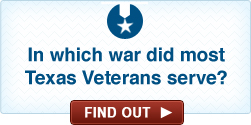While deployed in Iraq and Afghanistan, soldiers find community in one another, a community critical for survival. In their transition home, these soldiers often struggle to find their footing among peers or secure an individual sense of purpose and mission within a civilian community.
“A lot of veterans are frustrated and feel like they can’t make friends. Their peers in a college class, for example, haven’t had the same experiences, don’t have a shared language,” says Sean Hanna of Hope For Heroes. “You see a lot of veterans becoming friends with other veterans because they share an experience.”
In 2007, as veterans began returning to Texas from Iraq and Afghanistan, Kathryn J. Kotrla, M.D., and Col. Lori Sutton, commander of the Carl R. Darnall Army Medical Center at Fort Hood, identified a growing need for “early identification of and intervention for post-deployment community, occupational and family reintegration.”
TexVet.org was the result—and has since become a comprehensive Veteran Services Provider Network, a hub that links veterans and their families to the services, benefits, community connections, events, and peer networking opportunities available to them.
TexVet.org, now equipped with a rapid-response text program, helps veterans find connections and supports their path toward reintegration with a civilian community.
“These kids come back with questions after the chaos and madness and need a group to talk about it,” says Hanna. “The network provides rapport and trust to discuss experiences, see that what they are going through is normal.”
- Learn more about TexVet.org and the positive effects of using peer-to-peer support during the period of transition to civilian life. This site also maintains a current and extensive list of peer-to-peer support group activities all over the state, making it easier for veterans to find support networks within their own community.
- Watch this video on the power of peer-to-peer support for veterans:












